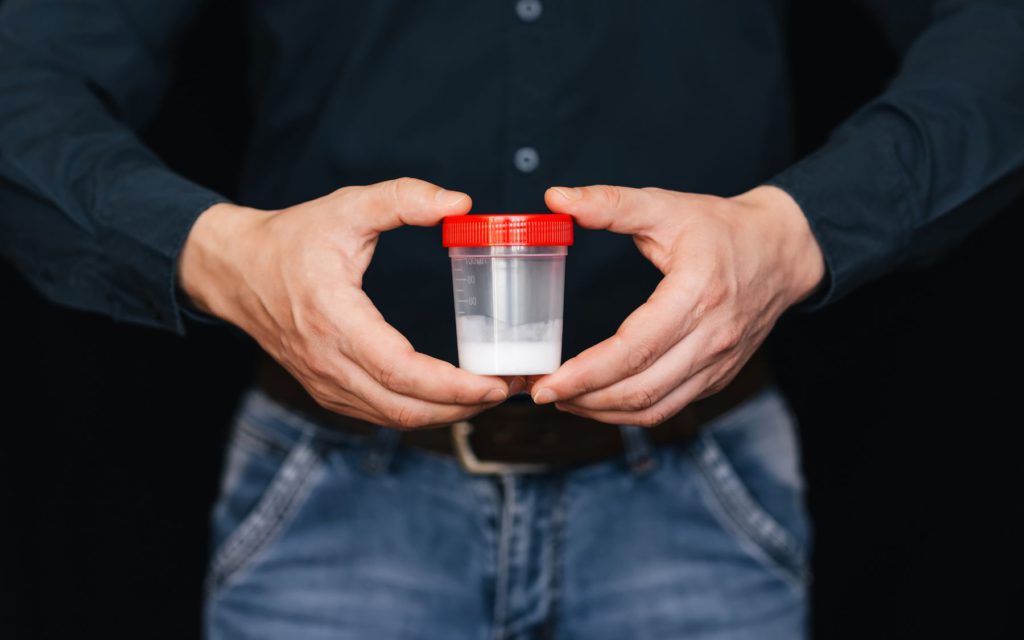Having a vasectomy is a step that should be carefully considered because it’s a permanent form of birth control. Here you will find many of the questions many men have as they are considering having this procedure.
What happens during a vasectomy? A vasectomy is a simple surgical procedure done to prevent pregnancy. It involves cutting two tiny tubes called the vasa deferentia. (One tube is called a vas deferens or vas.) Typically, sperm cells travel through the vasa deferentia before they’re mixed with semen and ejaculated out of the body. By cutting these tubes, the sperm cells’ path is blocked. Instead of being ejaculated, the cells are absorbed by the man’s body.
How effective is a vasectomy? After it takes effect, this procedure is about 99.95% effective in preventing pregnancy. This success rate makes it one of the most effective form of birth control available.
Where can I have a vasectomy and how long does it take? This procedure will be done in a hospital. They take about a half hour, and men can go home the same day.
Does a vasectomy hurt? Men are given local anaesthesia, so there shouldn’t be any pain. There might be some minimal discomfort after the anaesthesia wears off. This can usually be managed with ice packs or paracetamol. Aspirin and ibuprofen are not recommended, as they raise the risk of bleeding or bruising.
Can there be complications after a vasectomy? All surgical procedures have some risk, but complications after this procedure are rare. Complications can include the following:
- Sperm granuloma. When a vas deferens is cut, stray sperm cells can leak out. The immune system responds, which can lead to inflammation and, eventually, a small mass called a sperm granuloma. The mass is benign (not cancerous). A sperm granuloma can cause some temporary discomfort, but it usually goes away on its own. Pain medications may help. If it is especially bothersome, it may need to be surgically removed.
- Infections.Some men develop an infection after their vasectomy. The infection is usually treated with antibiotics.
- Hematoma. A hematoma occurs when blood collects in the scrotum after surgery. It often goes away on its own, but men should call their doctor if their scrotum gets bigger or becomes painful.
- Post-vasectomy pain syndrome.About 1% to 2% of men have chronic pain after vasectomy due to fluid buildup in the scrotum. Pain medications and warm baths may help. In more severe cases, surgery—or a vasectomy reversal procedure—may be needed.
Does a vasectomy increase the risk for cancer or erectile dysfunction? No. Men who have vasectomies are not at higher risk for cancer or erectile dysfunction.
What is a vasectomy recovery journey like? Most men take it easy for a day or two after their procedure. There may be some pain and swelling, but these symptoms can be managed with pain medication and cold packs. Men who work desk jobs normally go back to work the next day. Heavy lifting is restricted for about a week, so men with more physically demanding jobs may need to adjust their routine. Men should avoid ejaculation, through partnered sex or masturbation, for about a week.
Is a vasectomy immediately effective? No. It takes time for sperm cells to “clear” each vas deferens after a vasectomy. For this reason, couples need to continue using another form of birth control for a few more months or about 20 ejaculations.
What happens to the sperm cells after a vasectomy? Instead of being ejaculated, sperm cells are absorbed by the body which is completely harmless.
Is sex different after a vasectomy? Sex drive and orgasms feel the same as they did before the procedure. Semen volume should also be about the same, as sperm makes up a small percentage. Partners don’t feel a difference either.
Some men find sex to be more exciting after a vasectomy because they can be more spontaneous as the anxiety of unwanted pregnancy is reduced.
Does a vasectomy help against STI’s? No. While this procedure is extremely effective in preventing pregnancy, they do not protect against sexually transmitted infections (STIs) like HIV, HPV, and gonorrhoea.
Can a vasectomy be reversed if I want children? Yes. Although this procedure is considered a permanent decision, and men should think carefully before having one. But there are times when a man decides he would like to father children after all. That’s when a vasectomy reversal may be considered.
For more information, contact us to book in for a consultation.





0 Comments